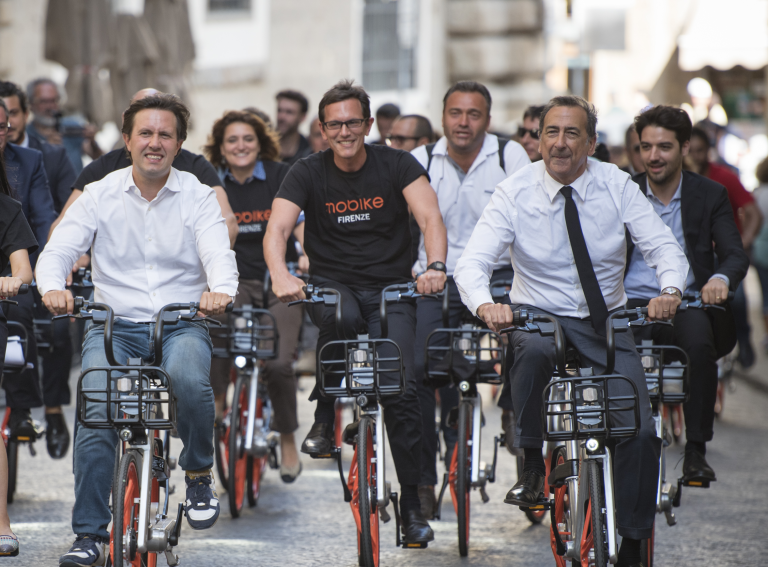Cycling UK is a national charity with more than 70,000 members, ranking in the top 100 membership organisations across the country.
For nearly 150 years, the organisation has relentlessly made the case for cycling at both the community grassroots level and amongst politicians.
Zag turns to the national charity’s Director of External Affairs Sarah McMonagle to evaluate the dynamics between the UK government and cycling, and how the political landscape of active travel came to be.
Zag Daily: How do you think the new UK government has handled active travel since it came to power two months ago?
Sarah: “It’s early days but the rhetoric around active travel has completely changed. We’ve been encouraged by Transport Secretary Louise Haigh’s plans to invest “unprecedented” levels of funding into active travel. She clearly recognises the wider benefits that cycling can bring, which is a huge step forward from where we were under the previous government. A few months ago, the previous Prime Minister and the Secretary of State for Transport were stoking culture wars around cycling and pitting drivers, cyclists and pedestrians against one another for electoral gain, so Louise Haigh’s comments are a breath of fresh air. Now we have a ministerial team in place who want to end this unnecessary culture war and are already talking about increasing funding. The proof, though, will be in the Autumn Budget pudding in October, when we get to see what the government means by this “unprecedented” funding.”
Zag Daily: What do you want to see in the Autumn Budget?
Sarah: “We want to see at least 10% of the transport budget allocated towards active travel, which is the equivalent of around £2 billion per year. We’re not naïve – we know public finances are in dire straits and we’re not talking about more money. We’re talking about reallocating funds away from less sustainable forms of transport like road-building. Building roads plays no role in tackling the climate emergency and improving public health, whereas investing in cycling infrastructure can do both of those things while also boosting the economy. That was the golden nugget from a report that we commissioned from the Institute for Public Policy Research into the wider benefits of cycling. It showed that for every pound invested in walking and cycling, £5.62 goes back into the wider economy. For roads, it’s only £2.50. So, on a purely economic basis, the case for investing in active travel is strong and that’s before you even get into the health and well-being benefits. That’s our pitch to the government, and we’re hopeful that the message has landed – but we won’t know for sure until the Autumn Budget statement at the end of October.”
Zag Daily: That’s more than double the returns for investing in cycling compared with roads. Why is that?
Sarah: “Great question. We commissioned further research earlier this year with think-tank Create Streets and they focused on the impacts that improving walking and cycling infrastructure can have on the local economy. The local high streets that flourish – the ones with the best commercial performance – are the ones that are safe and easy to reach and not entirely dependent on cars or dominated by fast and polluting vehicles once you’re there.
“If we make our local high streets more pedestrian and cycling friendly, you see more people spending money in those areas rather than having to jump in a car and drive to an out-of-town retail park. Having more pedestrianised areas and cycling lanes means more people can congregate around their local high streets and are more likely to spend, which is great for the economy. In fact, Create Streets found that retail sales increase by an average of 30 per cent following projects that improve pedestrian, cycling or public transport access to shops. And more simply, even just building the cycling lanes themselves requires building products, materials and skilled workers, which boosts the construction industry. Road building will never achieve that extra layer of economic growth in the way that active travel does. So it’s a tick, tick, tick for walking and cycling.”
Zag Daily: You’ve said you want to see 10% of the Department for Transport’s budget invested in active travel. Where specifically do you want to see those funds go?
Sarah: “The number one barrier to cycling is the perception of a lack of safety. Therefore, our main ask to the government is for the money to be invested in segregated (i.e separate) cycle lanes. That’s when a cycle lane is divided from the road and a physical barrier exists between cyclists and the rest of traffic. Separate cycle lanes make people feel most safe. I’m lucky because on my journey from my home in East Greenwich to our office in Borough, there are segregated cycle lanes nearly the whole way. I don’t need to worry about buses pulling out alongside me or car doors opening. I’ve also noticed that with the improvements to London’s cycleways, more children, teenagers, mums and dads are cycling to school. So it’s not just benefitting commuters like me but also families and young children. That’s fantastic because it means you’re embedding healthy habits from an early age rather than relying on a car. And you know what? What’s brilliant about more people cycling and walking is that drivers are the ones who stand to gain. If you can get people to cycle those shorter journeys under five miles, then it frees up the roads for people who really need to drive like people with mobility issues, or small businesses, or whoever it may be. So more people cycling is a virtuous circle for everyone, including drivers.”
Zag Daily: You spoke of the “culture wars” under the previous government. Where do you think that came from?
Sarah: “I think that particular culture war stemmed from the Uxbridge and South Ruislip by-election where the Conservatives thought the main reason they managed to get the win over the line was their negative stance on the expansion of ULEZ. That led to further pro-driver tactics for the 2024 general election. That’s where the ‘plan for drivers’ came in and all of the rhetoric about being on the same side as motorists, and everyone having the right to drive just as much as they’d like. It flew in the face of what earlier iterations of that Conservative government had been saying. Boris Johnson back in 2019 for example really understood the benefits of cycling and he was a passionate cyclist himself. So, it was a shame to see such a big pivot and it did feel like quite a cynical move from Rishi Sunak’s government.
“But even the Labour Party was claiming to be ‘on the side of motorists’ pre-general election so there was a temptation on both sides to lean into that language to win more votes. That’s why I’ve been pleased to see this change in rhetoric from the government post-general election because not that long ago they were saying similar things to the Conservatives. It’s important to celebrate the improvement in rhetoric but we must also wait for concrete policies and funding decisions before we get too giddy about what happens next.”
Zag Daily: If the Conservatives won the by-election in Uxbridge and South Ruislip for their stance on ULEZ, what does it say about the UK’s mindset towards cycling and driving?
Sarah: “You don’t have to be a cyclist to recognise the benefits. You could never get on a bike your whole life but still see that if more of us are cycling from A to B instead of jumping in a car then it improves air quality, makes our local communities more pleasant to spend time, while boosting public health and the economy.
“But as things stand, not everyone has clocked the benefits that come when more people cycle. That’s why a big part of Cycling UK’s new five-year strategy is to create this groundswell of public support for cycling so we don’t see this stop-start approach at the top of the tree in terms of government policy and funding. Until there’s a consistent level of wider public support for cycling, we’re always going to be too reliant on whoever happens to be Prime Minister, Secretary of State for Transport or Chancellor of the Exchequer and how supportive those individuals might be. If we have consistent public support, then policymakers will be compelled to reflect that in their decision making and we’ll see more consistent investment and policy. That’s our ‘theory of change’ and the strategy we think we need in order to maximise the positive contribution that cycling can make in a similar way to what we see in places like Holland and Denmark. In those countries, cycling is a ‘no brainer’ positive thing.”
Zag Daily: Who is one woman in the industry that inspires you?
Sarah: “Caroline Julian who is the Brand and Engagement Director at British Cycling. She’s my equivalent at British Cycling and she started her role a short time before I started mine. In some respects, British Cycling and Cycling UK could be seen as competitors, because they’re both membership organisations operating in the cycling space. But Caroline is one of those senior women in the industry that is naturally very collaborative and supportive. She recognises the benefits of our organisations working together and I’ve really appreciated that – it’s how I try to work as well. It’s always important to think about where you have common ground and support each other to deliver your respective organisation’s broader aims. Caroline has made an effort to do that and she’s a talented individual having a great impact on our sector.”





